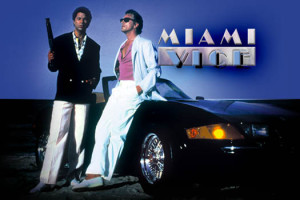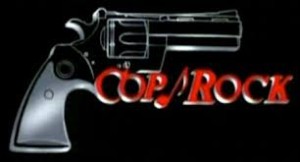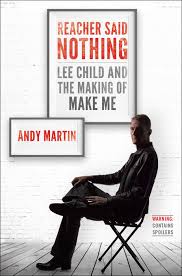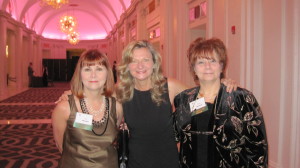When Is It Their Turn?
Terry Odell
 Secondary characters, as PJ pointed out in her post, can be great fun to write. They don’t have the responsibilities of the protagonists. They can provide insight into the protagonist, add some humor, be sounding boards, love interests, or foils.
Secondary characters, as PJ pointed out in her post, can be great fun to write. They don’t have the responsibilities of the protagonists. They can provide insight into the protagonist, add some humor, be sounding boards, love interests, or foils.
Sometimes, they branch out and become protagonists themselves. John Sandford gave Virgil Flowers his own stories. Robert Crais gave Joe Pike his own books. Will CJ Box’s Nate Romanowski move from strong secondary character into a protagonist in his own right?
In television, branching out into new shows happens all the time. Michael Connelly gave Renee Ballard her own books, and soon her own television series. Lee Child’s Reacher television series has a Neagley spinoff.
The rise of secondary characters is prevalent in romance, where “series” (I call them connected books) tend to have an ensemble cast in which a secondary character moves up to center stage in a subsequent book. I do that in my romantic suspense books, although when I wrote When Danger Calls, my first Blackthorne, Inc. book, I had no idea there would be another one. That series now contains twelve books, and a lot of secondary characters have had their turn at taking the lead. How do I decide whose turn it is? Often, I’m having fun with that character and want to do more. But sometimes, the character shows up and requests a bigger role. That’s what happened with Jinx, who became the lead in Dangerous Connections.

Here’s what happened.
Jess, my admin buzzes me.
“Terry, there’s someone here who insists on seeing you. Says his name is Josiah Nix.”
Jinx? What’s he doing here? “Tell him to have a seat, and I’ll see him shortly.”
Shortly—the most vague word in the English language. But it’ll buy me some time. I open my computer and pull up the files for my Blackthorne, Inc. series. After a quick review—somehow, once I finish writing a book, it’s gone from my head as soon as I start work on the next one—I feel ready to meet Jinx.
I buzz Jess. “Send him in.”
The door opens, and Josiah Ignatius Nix—which I’d shorted to Jinx for the books—enters. He’s not quite the same man I interviewed for his initial role in Where Danger Hides. Same not-quite-six-feet tall. His shoulder-length hair is pulled back into a tail at the nape of his neck. Same deep blue eyes and lashes to die for. But he’s hesitant, not curious the way he was at that first meet, which was quite some time and several books ago.
“Have a seat, Mr. Nix.”
“Jinx will do. I’m used to it now.”
He sits on the small sofa, as if he’s afraid taking a visitor chair would put him too close to me. One foot bounces, almost imperceptibly. Nervous?
“What brings you here today?” I ask.
He tugs at his ponytail. “Wasn’t completely my idea.”
This isn’t the behavior of a man in charge of Blackthorne’s command center.
“Who else?”
Another ponytail tug. The foot bouncing becomes more noticeable. “The guys, mostly. Harper. Dalton. Fozzie.”
“Can I get you something to drink? I’d offer a Red Bull, but from where I’m sitting, it doesn’t look like you need caffeine. I have coffee—decaf. And herbal teas.”
I open my drawer, check my snack stash. Down to a couple packets of cashews and almonds.
“I’m all right,” Jinx says.
I look at the clock. Just shy of three. “I generally have a break around this time, so it’s no trouble.” I flash my best reassuring smile, then buzz Jess and, voice lowered, ask her for the usual job interview refreshment tray.
“So,” I go on. “You’re still in touch with some of the Blackthorne team?”
“Sort of. Molly—that’s Harper’s kid. Actually, she’s Frankie’s kid, but Harper considers her his own. It was her birthday, and they invited me—us. Harper had a few things to say to me, and so I’m here.”
Jinx definitely wasn’t behaving the way I’d written him. Where was the always on top of things, always in control character I’d created?
Jess opens the door and comes in carrying a tray of assorted munchies. Cheese, crackers, cookies, nuts, and fruit, along with cocktail napkins. Do I detect a show of interest in Jinx?
“Help yourself.” To break the ice, I take a napkin, a piece of cheese and layer it on a cracker, along with a small bunch of grapes.
“Thanks.” He chooses an assortment of offerings. “Maybe a cup of decaf?”
“Coming right up.” I pop a pod into my brewer and start things going. Once we’ve had a few moments of more routine behavior, Jinx seems relaxed.
He sets his coffee cup on the end table and inhales a deep breath. “I like my job. I’m good at it. But I’m ready for … more.” He meets my gaze. “If that’s possible.”
Now we’re getting somewhere. “What do you mean by more?”
“I’m not complaining, don’t get me wrong. I mean after Where Danger Hides, you really increased my parts in the next books, and my parts were important. But—”
I wait. He doesn’t seem willing to go on. “What’s the but?”
“I’m always behind the scenes. Nobody ever sees me. And—” he lowers his gaze to a point between his feet. “And I want what the others got. A woman.” The word is barely audible.
“Someone they’re happy with. I want that, too. I mean, except for Harper, because it was the first book, the others start out in the background. I don’t know what you call them.”
“Secondary characters,” I offer.
“Right. And then, they get their own story, and they get their woman. I don’t want to keep being a secondary character.”
“I understand.” And I do. Seeing his book friends living their happily ever afters would make him—anyone—want the same thing.
“Are you saying you want to be part of an op? On the ground, so to speak, not at the command center.”
He nods. “Zeke’s good at the command center. The teams could manage with him at the helm for an op.”
I’m remembering an article I saw on the internet a week or two ago. I saved it, thinking there might be a story there. I hadn’t considered Jinx for the lead, but I could make it work.
“Are you willing to travel?” I ask. “Solo? Undercover, at least at first. Of course, if it’s a Blackthorne book, your team will have your six.”
“I think so. Would I still be using my intel skills?”
“Of course.”
Ideals swirl.
I’m already planning. Jinx isn’t a covert operative. Will he be willing to accept a partner—female—who would be more than an equal?
“Can you come back, let’s say in two weeks, and we can go over a story premise?”
He smiles, the first sign of the Jinx I remember. “I’ll be here.” He grabs a cookie and heads for the door.
After he’s gone, I go back to that article that caught my eye. Communication. Drug cartels. Mexico. All I need are some more characters. I’ve got one in mind for Jinx. He’s going to love her.

Okay, so it doesn’t always happen like that, but every once in a while, you—or I, anyway—need some fun.
Feel free to share other secondary characters that have moved up to protagonists.
New! Find me at Substack with Writings and Wanderings
When breaking family ties is the only option.
Madison Westfield has information that could short-circuit her politician father’s campaign for governor. But he’s family. Although he was a father more in word than deed, she changes her identity and leaves the country rather than blow the whistle.
Blackthorne, Inc. taps Security and Investigations staffer, Logan Bolt, to track down Madison Westfield. When he finds her in the Faroe Islands, her story doesn’t match the one her father told Blackthorne. The investigation assignment quickly switches to personal protection for Madison.
Soon, they’re involved with a drug ring and a kidnapping attempt. Will working together put them in more danger? Can a budding relationship survive the dangers they encounter?
 Terry Odell is an award-winning author of Mystery and Romantic Suspense, although she prefers to think of them all as “Mysteries with Relationships.”
Terry Odell is an award-winning author of Mystery and Romantic Suspense, although she prefers to think of them all as “Mysteries with Relationships.”


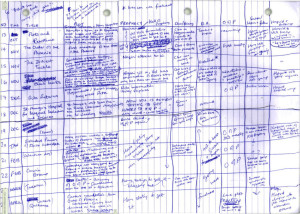
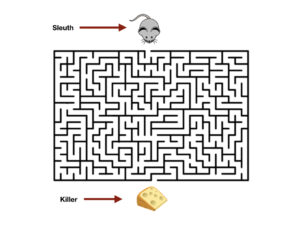
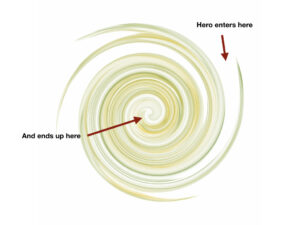
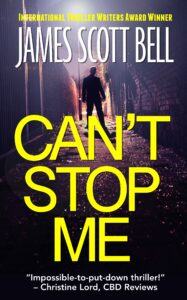

 Passive voice is something else again. Consider The dog bit the boy versus the boy was bitten by the dog. The former is active voice, the latter is passive voice. (I know someone out there is saying, “But what about The dog was bitten by the boy? That’s passive voice, but unexpected, and therefore more interesting.)
Passive voice is something else again. Consider The dog bit the boy versus the boy was bitten by the dog. The former is active voice, the latter is passive voice. (I know someone out there is saying, “But what about The dog was bitten by the boy? That’s passive voice, but unexpected, and therefore more interesting.)

 A controversy over an award-winning female thriller author has broken out in Europe. That’s because the female thriller author doesn’t exist. “She” is really three men who have been writing under the pseudonym Carmen Mola. When one of their novels won a million-euro prize, the trio
A controversy over an award-winning female thriller author has broken out in Europe. That’s because the female thriller author doesn’t exist. “She” is really three men who have been writing under the pseudonym Carmen Mola. When one of their novels won a million-euro prize, the trio 

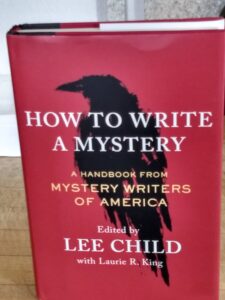 I highlighted many more passages but I’ll stop now because this post is running almost as long as the book itself.
I highlighted many more passages but I’ll stop now because this post is running almost as long as the book itself.
